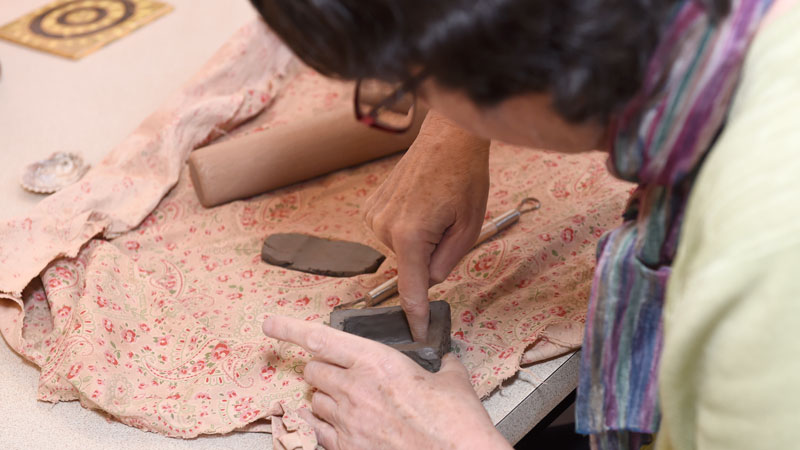Published:

Heriot-Watt's research on healthy ageing is among the top ten most-read articles on ageing research and policy according to the Centre for Ageing Better.
Appearing in the list alongside studies from Australia, the Netherlands and the Joseph Rowntree Foundation, Heriot-Watt's 'What Keeps You Sharp?' survey attracted widespread attention during 2018.
The survey asked 40-90 year olds across the UK about how their 'thinking skills' might change in later life and what factors would help to retain them. Almost 9 out of 10 people believed there were things that could be done to maintain or improve thinking skills; two out of three people felt it was important to challenge the mind or to be physically active.
The Heriot-Watt team is currently recruiting participants for a major study that is exploring whether trying a new activity can help thinking skills as we age. The study, which will include 300 adults aged 65 and over, will see participants undergo a range of cognitive and psychological assessments before they start their new activity.
The activities chosen vary in terms of the mental, social or physical engagement, but might include participating in language classes, taking up a sport or meeting new people in social clubs. After following their activity for 2-3 months, the volunteers return for repeat assessments.
Dr Alan Gow, from the Ageing Lab at Heriot-Watt University, explains: “Changes in our thinking skills are among the most feared aspects of growing older and can be related to a lower quality of life and a loss of independence.
“In this study, we are asking people to take up an activity they haven't done before, to see how becoming more engaged might benefit their thinking skills.
“In contrast to other studies which have been developed and tested in lab-based settings that may not translate to the real world, our study will test a range of activities within existing community-based programmes. We have designed it so that the findings will hopefully have real-world benefit.”
Diana, one of participants who has already taken part in the study, said: “I loved the opportunity of taking on something new. I applied myself to each activity whilst I am normally guilty of saying I take something on, but never get round to it or give up halfway through. But there was a hidden discipline in this so I completed tasks.”
Urging others to give it a go, Diana said: “Go for it. You have nothing to lose and could really enjoy yourself and learn something new.”
For more information about the study or to take part, please visit https://healthyageing.hw.ac.uk/research.html, email healthyageing@hw.ac.uk or call 0131 451 8009.